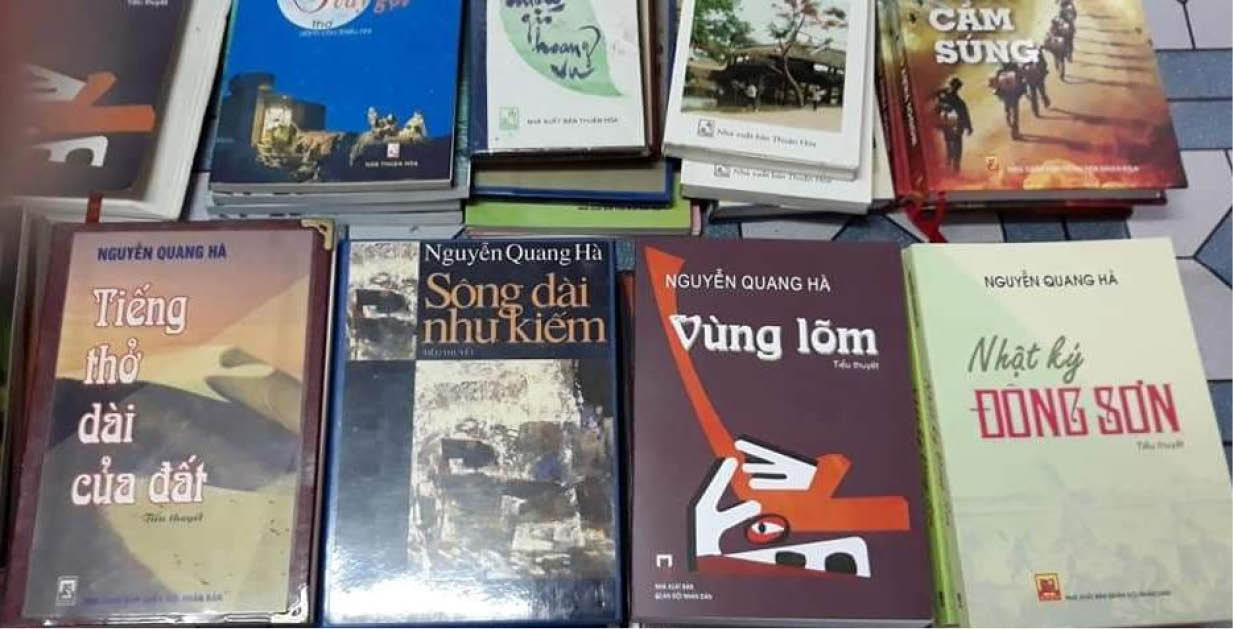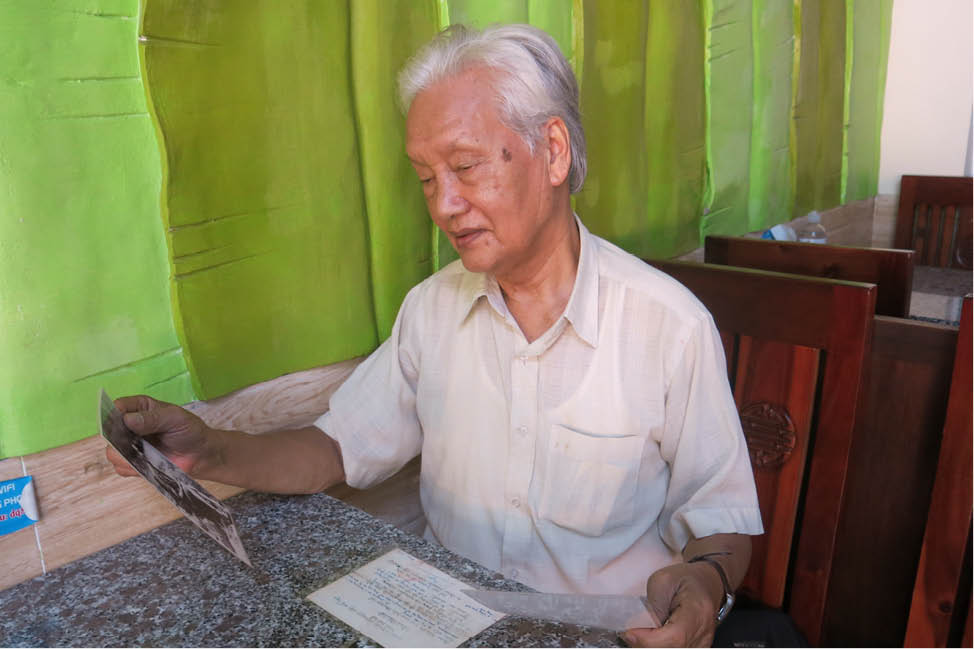
Nguyen Quang Ha’s works of the wartime
Nguyen Quang Ha: Paying a debt of gratitude to fellow soldiers and people
In the peak of the war against the Americans, the teacher Nguyen Trong Truong (the real name of writer Nguyen Quang Ha) quitted the teaching career and, together with 155 other teachers from Kinh Bac, volunteered to fight in Binh Tri Thien battle field in Ngo Gia Tu Company. Touched by his fellow soldiers’ bravery, unconquerable spirit, sacrifice and the people’s protection during the life-or-death days, Nguyen Quang Ha was urged to write about them.
Every time he returned to the base from a battle, he quietly looked for cigarette packages and pieces of paper to sketch his stories, poems and newspaper articles. Later, he was assigned to work as a journalist for Co Giai Phong (Liberation Flag) Newspaper, the official mouthpiece of Thua Thien Hue Front in 1970.
In 1974, Nguyen Quan Ha was injured and sent to the North for treatment. While he was there, he attended a training course in writing held by the Vietnam Writer Association, led by the poet Xuan Dieu. It was Xuan Dieu who encouraged Nguyen Quang Ha to write short stories and novels. “I’m in military uniform” was his first novel.
Nguyen Quang Ha said: “My writing about the wartime was on the two main themes, which were my combat units and Thua Thien Hue people’s contributions such as building the secret bunkers, fostering revolutionary officials and encouraging their sons to join the army. The grandest image I focused on was the mother. When I fought in Hue, I was fostered in the secret bunkers by different mothers, who took care of me the way they took care of their sons. They accepted better death than revelation of the soldiers’ place.”
The vivid reality of the war and the sacrifice of the wives and the children whose pain still echoes today, and the people’s protection were the inspiration for Nguyen Quang Ha to write and the memories to never forget.
His novels included Song Dai Nhu Kiem (‘The long river like a sword’), Tieng Tho Dai Cua Dat (‘The sigh of the land’), Vung Lom (‘The isolated zone’), No Doi (‘The life debt’) and Neu Khong Co Nhan Dan (‘Without people’). The best-known was Vung Lom (‘The isolated zone’) about Mai Trung village in the outskirt of Hue, where soldiers, guerrillas and people were fighting in the contemporarily-occupied zone.
In addition to poems and short stories, Nguyen Quang Ha has 17 novels, 13 of which are about the revolutionary war in the contemporary literature.
To Nhuan Vy: The battle field inspired my writing
Also rising in the war against the Americans, To Nhuan Vy became a writer who was inspired by the reality. In 1968, he was a battle correspondent. With hundreds of articles, his vivid documents about the heroic qualities of the people and fellow soldiers accumulated over time.
Thinking that writing article was not enough, he started to compose literary works. In addition to short stories, he started to write novels at the age of 23 because he believed novels depicted better the glory as well as the tension of the war.
After 10 years, he released the trilogy Dong Song Phang Lang (‘The quiet river’) with over 2,000 pages. The trilogy was about the fighting of Hue people in The General Offensive and Uprising of Tet Mau Than 1968. It was transformed into a fifteen-episode TV series, as well as republished several times.
It was To Nhuan Vy’s youth memories. In 2012, he launched the novel Vung Sau (‘The remote area’) about the post-war concerns and injustice facing the South intellectuals following the revolutionary cause.

To Nhuan Vy is telling about his writing at the front during the war time
Instead of writing about the victories of big battalion or legion, To Nhuan Vy focused on heroic people and the unity between soldiers and people, because he believed that soldiers could hardly win great victories without the assistance and protection of the people.
To Nhuan Vy said: “The battle fields inspired me and made me a writer. The reality of the war and the experience urged me to write. I did no mean to become a writer then. I didn’t have many works, but all I wrote was authentic because it came from my own experience of the battle.”
Ha Khanh Linh: writing was never enough
Originating from an educated family, 20-year-old Ha Khanh Linh decided to drop the foundation course at the Saigon University of Sciences to join the Liberation Army. Experiencing the hardship and toughness of Tri Thien and Cambodian battle fields, she always has great inspiration for the theme of war.
During her writing life, Ha Khanh Linh has published over 30 books, most of which are about the war. From her first novel Trang Canh about the struggle of the urban residents in the South to the later works, both short stories and novels, the characters are either combatants or people from the areas in war.
In her works, such as Thuy, War and Post-War, Apsara Smiles, Truong Son on that day, Ha Khanh Linh not only depicted the fierceness of the war but also touched the human issues such as the righteous vs. the unrighteous, the greatness vs. the vileness, and life vs. death.
Despite being a woman, she used to join the tough battles to have the vivid writing. During the peace time of the country, she even dared to go to Cambodia during its fighting against Pol Pot and his forces.
The work Apsara Smiles with vivid and realistic writing was finished during the time she traveled around Cambodia regardless of the danger. The work was granted Mekong Literature Award.
She said: “In the war time, I used to bury my fellow soldiers and witnessed their brave sacrifice, and I also know many intellectuals who left their studies behind to follow the revolutionary cause. For me, the more I wrote about the war, the less I could uncover the sacrifice and the resilience of soldiers and people.”
Story and photos: TRANG HIEN
